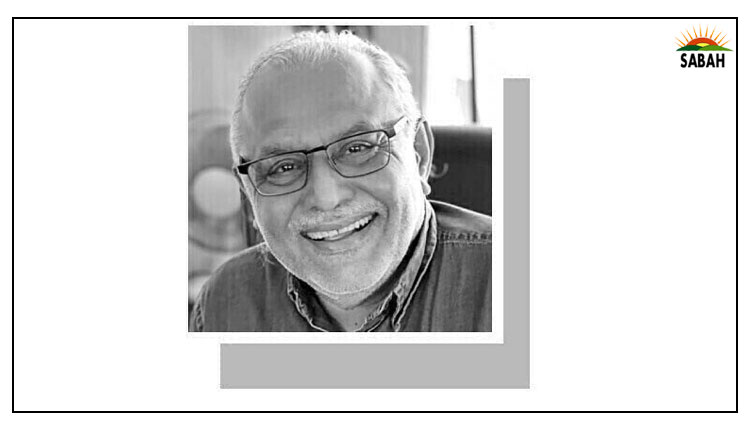Pakistani women entrepreneurs and sole proprietorship ….. Dr Rakhshinda Perveen
The fight for women entrepreneurs facing compound layers of inequality in Pakistan is relentless. A critical front in this confrontation is the eligibility to access donor funds, including feminist funds.
Allow me to unpack the predicament of women without the push of class and the pull of networks – defined here as the social and professional connections that provide support and opportunities – by posing two questions: Are donor agencies, development partners and policymakers serious about digitalisation, empowering women and dismantling outdated bureaucratic and financial obstacles? Can you become a successful, empowered woman entrepreneur in Pakistan if you do not have fancy corporate boards or shiny offices? The reality is no. While some might resist or outright reject this seemingly harsh position, the truth for many talented women is stark. These women often find themselves trapped in a system that fails to provide accessible funds or sponsorships for sole proprietors. Many of these women – and I am one of them – are ensnared within exclusionary frameworks. It is time to expose how ineffective business conditions not only fail women but also hinder our collective progress.
I have expressed my concerns – perhaps in vain – about the disabling environments and absurd human resource and financial regulations in place within international donor agencies and global development platforms, including the UN, which is viewed as a key donor in Pakistan. The ease of doing business for an ordinary single woman is virtually non-existent.
In today’s Pakistan, a woman striving to break free from structural patriarchy and social elitism as a sole proprietor confronts a convoluted web of rules and requirements. The existing regulatory environment, designed for registering and then building non-profits or for-profit companies and businesses, requires not only significant capital investment, but enough social and political power to counter entrenched barriers rather than providing solutions.
By giving precedence to colonial-era frameworks such as Boards of Directors and Boards of Governors – often dominated by powerful men or women – these structures systematically marginalise skilled women, particularly those who are on their own and face intersecting challenges, whether ethnic, economic or social. This dynamic not only validates but also immortalises elite capture under the guise of business rules.
Despite the social development industry’s purported emphasis on digitalisation, fundamental contradictions permeate the system. The very banks that champion the digital economy still mandate a physical, brick-and-mortar address to open an account and access financial services.
In a world that increasingly operates in the cloud, this requirement stands as an absurd relic of the past. What does this say about our commitment to empowerment when women, who may lack the resources to establish a formal office, are denied access to essential financial tools? This preventable obstacle not only deters individual progress but also hurts broader efforts toward gender equality and economic inclusion.
The normalisation of elite capture and the exclusion of the vulnerable is astonishing. Ironically, those who dominate headlines in the media and high-profile forums as challengers of colonialism, champions of decolonisation or rejecters of elite consensus are often either traditional elites or newly transformed ones, benefiting from the very systems that create illusions of equality and deceptive inclusivity.
Elite capture within the business and non-profit sectors perpetuates inequality. The rigid entry points that permit only those with established wealth and elite networks to access funds or sponsorships deepen the chasm between the haves and the have-nots. These colonial frameworks were not designed for the women I work with – talented, resilient individuals lacking the entitlements necessary to start or scale their businesses or ideas. This is not empowerment; it is merely an extension of exclusionary systems that maintain the status quo.
As an intersectional feminist, I challenge the very definitions of “enablement” and “empowerment” that policymakers and influencers promote. Are we truly enabling women to rise as genuine economic actors, or are we merely reinforcing entitlement and elite capture through archaic financial rules?
Through my work across Pakistan, in sectors ranging from health, reproductive health, education, gender, population, finance, climate and agriculture to youth, adolescents, trans individuals, differently-abled people, women, minorities and other marginalised communities, I have witnessed firsthand the ingenuity and perseverance of disadvantaged communities, particularly women and girls fighting to survive and thrive. Yet, their potential remains untapped because they are excluded from the formal economy. What we need are community-centric, data-driven strategies that prioritise context-specific solutions, bringing those who have been systematically sidelined into the centre of the conversation.
Donor agencies, development partners and policymakers must reconsider their approach. The key lies in redefining eligibility criteria for financial inclusion. We need simplified access to funds and sponsorship for sole proprietors – women who may not have a formal boardroom but possess the expertise, resilience and drive to create meaningful impact.
It is crucial for donor agencies and policymakers in Islamabad to reassess the current economic models governing business ownership for women in Pakistan. We must apply an intersectional lens that recognises the intersecting barriers of class, gender and systemic patriarchy. By alleviating the financial and bureaucratic constraints placed on women sole proprietors , we can unlock their potential as agents of change.
This is my call to donor agencies and policymakers in Islamabad and their headquarters across the globe: recognise the value of sole proprietorship for women. Remove the constraints that prevent them from becoming legitimate economic actors. It is time to move beyond superficial narratives of empowerment and make room for real inclusion. By doing so, we can unlock the vast potential that these women hold, transforming not just their lives but also the future of our economy.
It is time to stop talking about empowerment and start enabling it – genuinely and inclusively. The digital economy, entrepreneurship and social development must belong to everyone, especially those who have historically been left behind.
Courtesy Express Tribune











